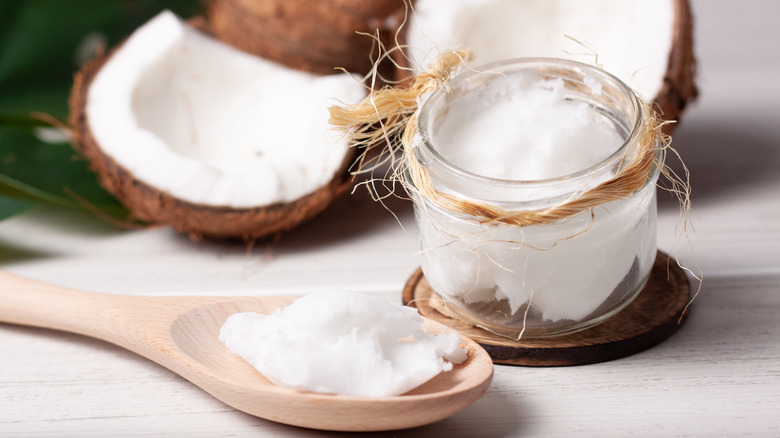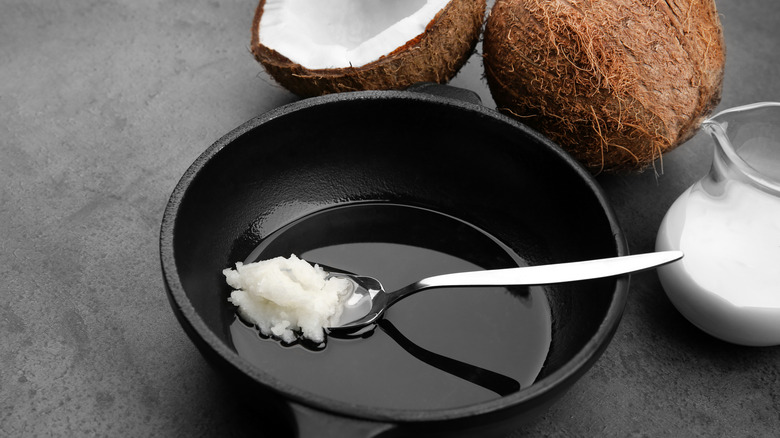What Happens To Your Body When You Eat Coconut Oil Every Day
Health trends come and go, but one that may live on forever is coconut oil. A few years ago it seemed like you couldn't open Instagram or Facebook without seeing influencers rave about the benefits of using coconut oil for everything from a hair mask to body lotion to a coffee mix-in. This oil is often touted as one of the healthier options to use in your cooking, but some experts caution against making it a standard part of your diet.
The biggest worry people have about coconut oil is its saturated fat content. This oil is very high in saturated fat, which has been linked to a variety of health conditions. "Studies upon studies have shown that the long-term effects of having a diet high in saturated fat is detrimental to your health," Tracy Lockwood Beckerman, a registered dietitian at TLB Nutrition in New York City, told Prevention. Too much saturated fat in your diet raises your cholesterol and increases your risk of heart disease and stroke. A 2016 study published in Nutrition Reviews found that coconut oil raised "bad" LDL cholesterol more than unsaturated plant oils like vegetable oil and olive oil. Eating coconut oil every day could put you at risk of high cholesterol.
Eating coconut oil in moderation is safe
Like with most foods, enjoying coconut oil in moderation shouldn't affect your health significantly. According to Harvard Health Publishing, coconut oil is "neither a superfood nor a poison." For those who enjoy the flavor, it can be eaten in moderation combined with a whole foods diet filled with fruits, vegetables, and whole grains. If you don't particularly like the taste of coconut oil, you won't lose any major benefits by switching to something like olive oil or avocado oil.
Coconut oil does have some health benefits too. According to Healthline, studies have suggested that it can encourage fat burning, kill bacteria, and reduce hunger. It can also improve the look of your hair, skin, and teeth. To get the most out of coconut oil, choose organic virgin products instead of refined ones, which lose many nutrients during processing. You should also avoid coconut oil if you are at risk of heart disease or have a history of the disease in your family. In that case, speak with your doctor about the best dietary choices for your needs.


